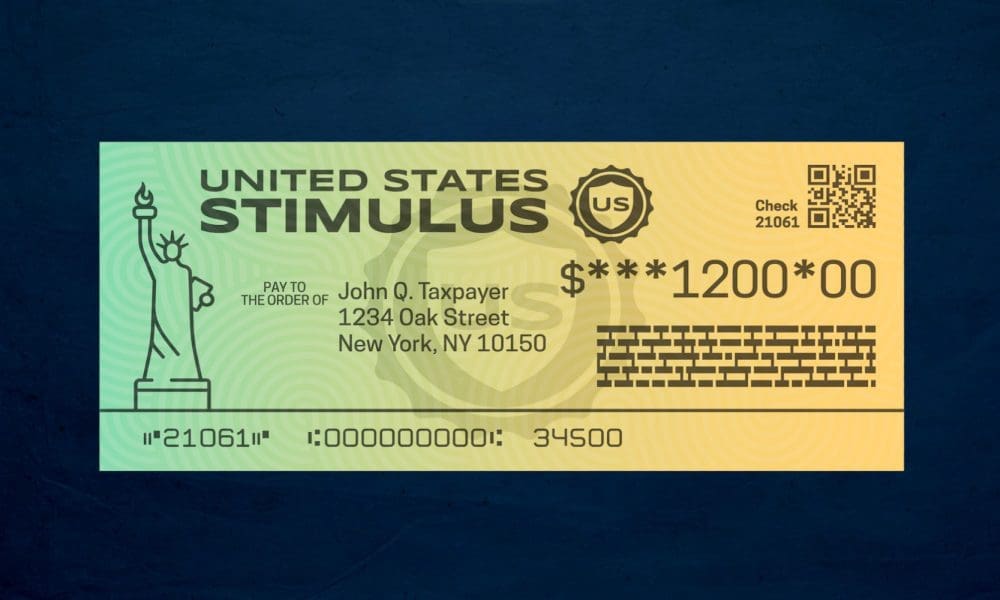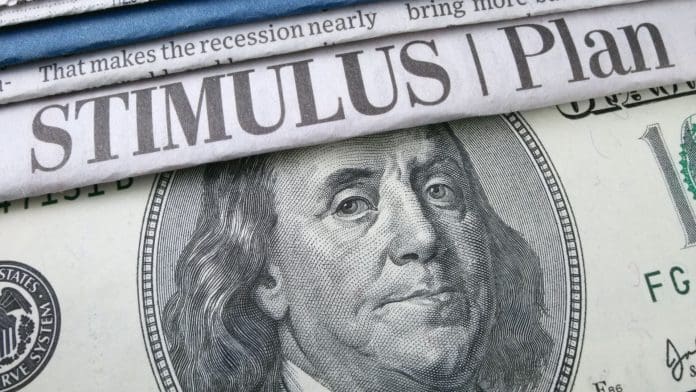It is more than a year into the record inflation that has assailed America. Prices have risen across products and services with gasoline, groceries, and housing the hardest hit. In such a situation, several states are preparing to send out direct stimulus checks to their residents to provide relief from inflation.
Another issue that has needlessly worried residents of states that received inflation stimulus checks is the federal tax on relief payments. The IRS itself was in a quandary on how the payments should be treated. Right into the tax season, it advised citizens of these twenty-odd states to hold off filing their returns till officials determined whether the state stimulus check was subject to taxes under federal laws.
The IRS informed that they will not collect federal taxes against inflation relief tax refunds and stimulus checks issued by state governments to residents. The reprieve will amount to tens of millions of taxpayers who received the subsidies.
The IRS previously had asked filers to hold off filing their 2022 income tax returns. This was an unusual request as the agency had always asked filers to submit income tax returns as early as possible. This was done to enable tax officials to decide on the matter. The IRS took time to determine if the state payments were federally taxable. It was an unusual statement issued by the agency as it has always called for submitting income tax returns at the earliest to avoid last-minute hassles.
The 2022 tax filing season began on January 23 this year. The announcement by the IRS means that taxpayers in over twenty states can finally file their income tax returns. Residents of states across the US from Alaska to Florida will not have to pay any taxes collected against state payments or refunds. They also do not have to even report them on their income tax returns.
The agency has decided that the inflation relief payments made by these twenty-odd states were primarily for disaster relief or the promotion of the general welfare of residents. In both cases they would not be taxable, the agency said.

Residents of Massachusetts, Virginia, South Carolina, and Georgia will have to report their state relief checks as income unless recipients claim them as standard or itemized deduction, but did not receive any income tax benefit, the agency informed.
Most states were flush with revenue thanks to wage gains in 2021 and 2022. Close to two dozen states in America issued payments to combat inflation across summer. The payments have continued into the winter season as some states have timed their stimulus checks with the festive season.
California is one such state that timed its stimulus check for the last quarter of 2022. Despite including the Middle-Class Tax Rebate of up to $1,050 in July 2022 in their state budget, the amount was only sent out starting October 2022.
The stimulus check went out to 23 million residents out of a total of 38 million, close to 60% of the population. The payments are between $200 and $1,050 depending on several factors, including the residents’ Adjusted Gross Income for 2020, the presence of dependents, and also the filing of income tax returns for 2020 by October 17, 2021. Close to 16M residents have already received the payout out of the eligible 23M.
New York has also awarded inflation relief stimulus checks worth $270 for low and moderate-income individuals and families. The state has also enacted property tax and home rent relief. Oregon has sent out a $600 stimulus check to low and moderate-income households while Georgia has gone for a $500 credit for tax filers after they submitted their income tax returns for 2021.
IRS Decision On State Stimulus Check Comes Finally
The agency’s decision not to tax the state stimulus checks came on a day that the IRS reported positive service numbers. A treasury department official disclosed on condition of anonymity that the agency had answered 88.6% of its calls from the start of the filing season through February 4. This is up from the 13% of calls that it attended the previous year and 11% for 2021.
The tax agency also invested in fresh technology and hired 56,000 additional staff to man phones that were based on funding from the lay. The IRS has recently introduced fresh tools that enable tax filers to check their return online and also file their non-wage earning, including money earned from gig work.
The IRS has disclosed that it was aware of questions arising out of the special tax payments and refunds made by certain states that are related to the pandemic and its associated consequences in the past year.


It further said that the state programs that sent out the payments to residents in 2022 and the rules that govern them are quite complex. The agency said that while generally payments from states are included in income for federal income tax, exceptions are made that apply to many of the payments that states made in the last year.
Many state leaders have welcomed the move by the IRS. Colorado governor Jared Polis has said that millions of Coloradans have breathed a sigh of relief that the federal government and the Internal Revenue Service stepped in and waived taxes on state inflation stimulus checks in 2022.
He said that his government would continue fighting to maintain this precedence and that funds under TABOR should never be considered for taxation. The agency has noted that the COVID-19 emergency fund was set to end in May. This indicated that if there are any more stimulus checks from the states in 2023, they might end up being subjected to federal income tax.
The agency has also stated that filers who are not certain about the future taxability of stimulus checks from their states, should wait until they receive a clear response from the relevant authorities. And from filers and preparers who have a question, the correct course of action would be to bide time till a full clarification is issued by the IRS.






